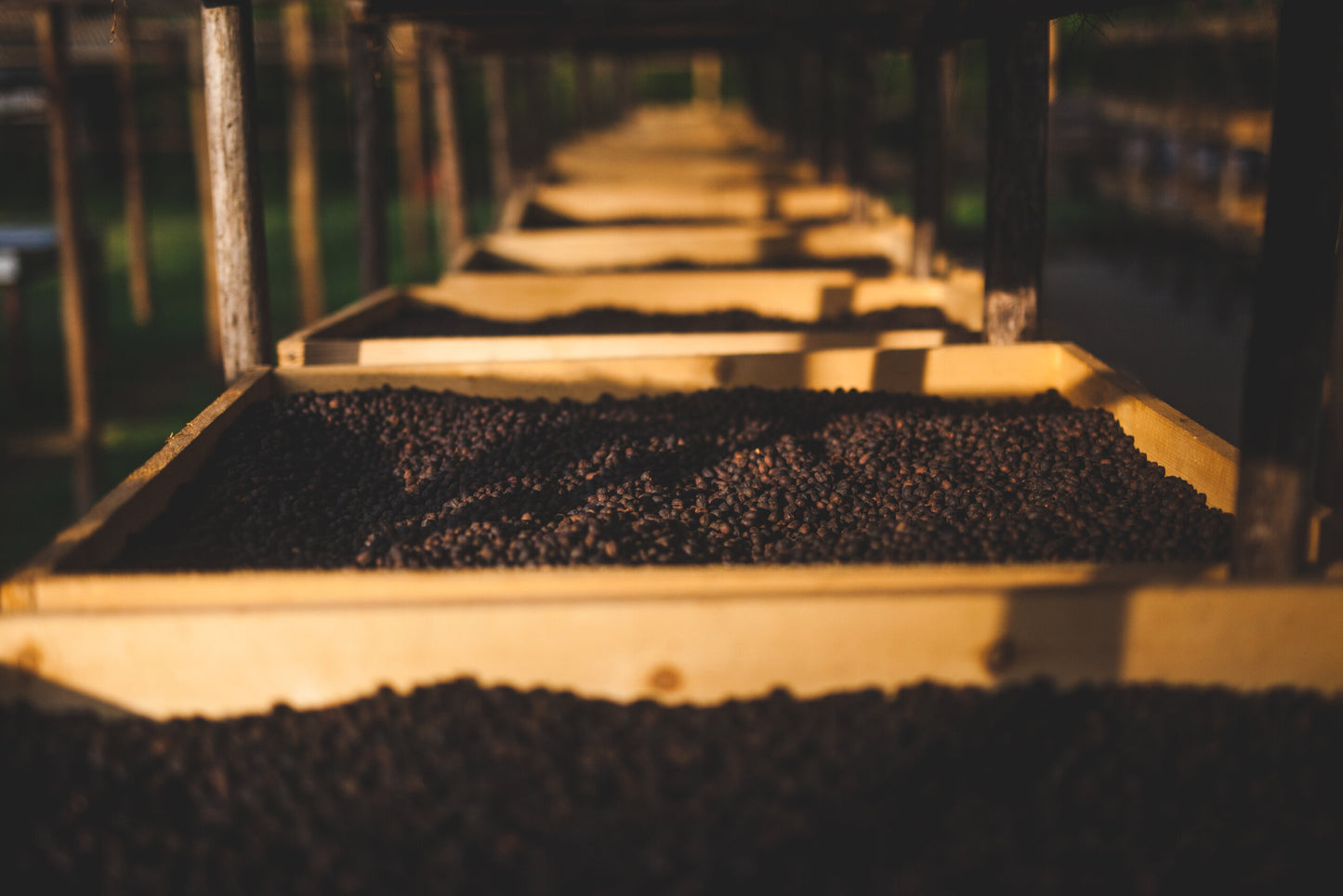Happ Coffee Roasters
Ethiopia East Harar Natural
Ethiopia East Harar Natural
Couldn't load pickup availability
About the Producer
Ethiopia’s Oromia region is home to the world's first commercial coffee growing area, the world-famous East Harar. This commercial cultivation began in 1400 and continues to this day.
Like the rest of Ethiopia, it’s divided into several woredas (districts) and kebeles (communities) with washing stations throughout—each offering unique terroir. The Massela woreda is one of them, and within it lies the Tulu kebele.
In the Massele washing station, the coffees are fermented for 48 to 72 hours, depending on climate. The typical temperatures in this area used to reach as low as 32 F at night and 77 F during the day, but in recent years the climate has been rising to reaching 59 F at night and 86 F during the day. This has brought fermentation times increasingly closer to 48 hours than to 72 hours. After fermentation, coffee is dried for 15 to 21 days on solar beds, with frequent turning for even drying.
The people of Tulu belong to the Oromo culture and speak various dialects of the Oromo language.
The community’s main source of income is coffee, which they grow on very small farms ranging from 0.1 to 2 hectares. They intercrop using false banana trees and acacias for shade. Fertilization is rare in this area, although acacias are leguminous and therefore fix nitrogen into the soil.
Historically, Tulu was not only known for its coffee but also for its amazing mangos, barley, and sorghum. Due to the low prices of these products and the careful handling they require, many in the area began to replace coffee with eucalyptus and khat (a popular stimulant drug in Africa). East Harar was the first area in Ethiopia where the cultivation of khat was introduced, and it’s taken off there.
Unfortunately, these crops are harmful to the environment due to their large consumption of water, which depletes the water table. Coffee, on the other hand, is native to the forests of Ethiopia and can have a forest-protective effect.
Much of the traditional coffee-specific knowledge is being lost as coffee cultivation becomes marginalized for khat and eucalyptus. These newer, non-native crops grow independently and don’t need the same kind of agricultural management coffee requires, despite their disruption of the native environment. That ease is attractive and profitable for the young people of the area, who often end up replacing all the coffee on their farms if they aren’t selling their farms entirely.
There are still producers in Massele who value coffee and want to preserve their ancient agricultural knowledge for generations to come—but dangerously few. This is an endangered coffee, one that we value highly as a historic coffee that likely won’t be around forever.








